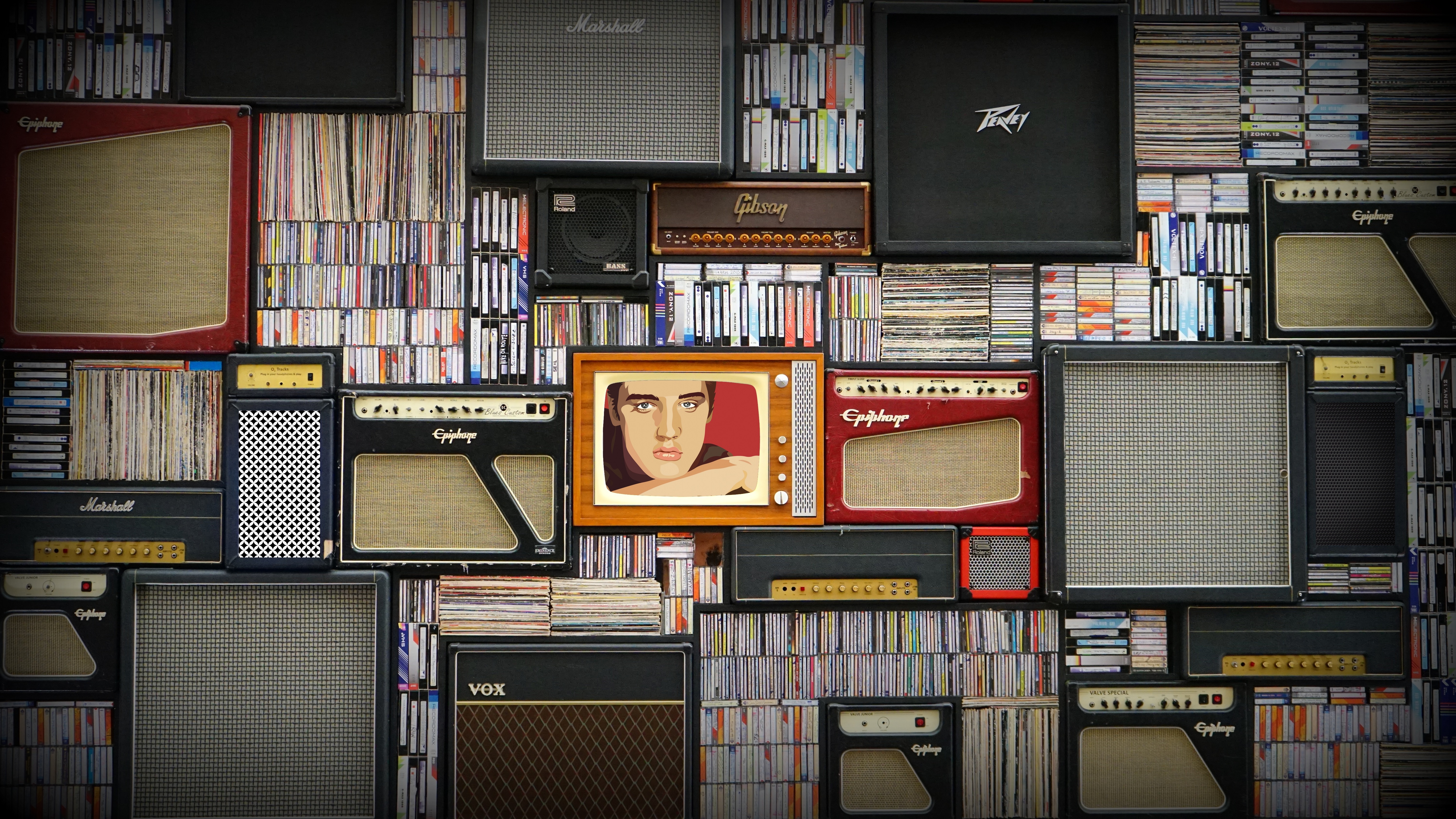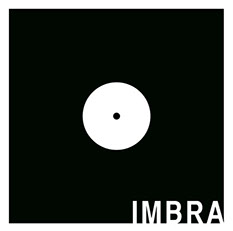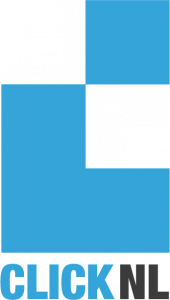Conference programme
If you have any questions in relation to the conference, please e-mail imbrd2021@gmail.com.
An overview of the most important information can be found below.
Enjoy the conference!
Conference locations
- Location on-campus key notes and sessions: Van der Goot Building, Thomas Morelaan, Rotterdam. Directions to the Woudestein campus: https://www.eur.nl/en/campus/locations/campus-woudestein/route-directions
- Location welcome reception on Wednesday: Cafe Stalles, Nieuwe Binnenweg 11A, Rotterdam
- Location Young Scholars Workshop: Willem de Kooning Academy, room BL -1.3 (basement), Blaak 10, Rotterdam.
- Location conference dinner on Thursday: Aloha – Low Waste Food Bar, Maasboulevard 102, Rotterdam
Covid-19 Measures
- Overview of Dutch measures against Covid-19: https://www.government.nl/topics/coronavirus-covid-19/tackling-new-coronavirus-in-the-netherlands
- Information about travelling to the Netherlands from abroad: https://www.government.nl/topics/coronavirus-covid-19/visiting-the-netherlands-from-abroad
- Restaurants and cultural venues require a Digital Covid Certificate: https://www.holland.com/global/tourism/information/covid-desk.htm
- The conference venue on campus is accessible without restrictions.
Conference organisation and sponsors
The conference is organized by the POPLIVE research team and supported by IMBRA, the International Music Business Research Association. It is hosted by ERMeCC, the Erasmus Research Centre for Media, Communication and Culture in cooperation with Creating010. The Friday afternoon programme is powered by CLICKNL. For more information, please contact: imbrd2021@gmail.com.
Overview programme
All times follow the Central European Time (CET).
| Wednesday | |
| 13:00 | Young Scholars Workshop |
| 17:00 – 19:00 | Welcome reception including drinks and small snacks |
| Thursday | |
| 09:00 | Registration and coffee (Lobby M1 West) |
| 10:00 | Welcome + Keynote Peter Tschmuck (M1-19) |
| 11:00 | Break (Lobby M1 West) |
| 11:15 – 12:45 | Sessions 1 (M1-19, M3-05 & online) |
| 13:00 – 14:00 | Lunch |
| 14:00 – 15:30 | Sessions 2 (M1-19, M3-05 & online) |
| 15:30 | Break (Lobby M1 West) |
| 16:00 – 16:45 | Keynote Jennifer C. Lena (stream in M1-19) |
| 17:00 – 18:15 | IMBRA Annual General Assembly (M1-19 & online) |
| 19:00 | Conference Dinner |
| Friday | |
| 9:00 | Coffee (Lobby M1 West) |
| 9:30 – 11:00 | Session 3 (M1-19, M1-08 & online) |
| 11:00 | Break (Lobby M1 West) |
| 11:15 -12:45 | Session 4 (M1-19, M1-08 & online) |
| 13:00 – 14:00 | Lunch (Lobby M1 West) |
| The afternoon programme is powered by CLICKNL | |
| 14:00 – 15:00 | Industry forum 1 – Music & communities (M1-19 & online) |
| 15:00 – 15:30 | Break |
| 15:30 – 16:15 | Keynote Brian Hracs (streamed in M1-19) |
| 16:15 – 17:15 | Industry forum 2 – Resilience of the music industries (M1-19 & online) |
| 17:15 | Drinks |
During the conference the Rotterdam Popweek takes place with various concerts and other events in the city: http://rotterdamsepopweek.popunie.nl/
Full programme
All times follow the Central European Time (CET).
Wednesday
13:00 – Young Scholars Workshop (Willem de Kooning Academy, room BL -1.3 (basement), Blaak 10, Rotterdam.)
Chair: Pauwke Berkers
| Ben Bishop | A ‘corporate typology of musical practice’: An exploration of how theories of creative labour and entrepreneurialism are applied to musicians. |
| Britt Swartjes & Thomas Calkins | Crossing the (Erasmus) bridge: how music festivals reconstruct or breach spatial boundaries within Rotterdam |
| Arthur Ehlinger | Live Music Streaming: Artists, Labour and Economic Opportunities |
| Didier Goossens | Reclaiming Aotearoa: Navigating the emancipation of Indigenous identities through Indigenous metal |
| Boris Gunst | The audience as gatekeeper: Attention for unreleased techno music in online communities as indicator for post-release success |
17:00 – 19:00 – Welcome reception (Cafe Stalles, Nieuwe Binnenweg 11A, Rotterdam)
Thursday
09:00 Registration and coffee (Van der Goot Building, Thomas Morelaan, Rotterdam)
10:00 Welcome + Keynote Peter Tschmuck (M1-19)
Music Business Research – Why, How and What for?”
Bio
Dr. Peter Tschmuck, born on Oct 5th 1971 in Graz (Austria)
Associate Professor for Cultural Institutions Studies, University of Music and Performing Arts Vienna
Dr. Peter Tschmuck studied Economics and Management Sciences at the University of Innsbruck in Austria and earned there his doctoral degree in Economics in 1999. From 1999 to 2000 he was Assistant Professor at the Vienna University of Economics and Management until he changed to the Department of Cultural Management and Gender Studies (IKM) at the University of Music and Performing Arts Vienna. In 2003 he finished his habilitation about “Creativity and Innovation in the Music Industry” and was then appointed associate professor for Cultural Institutions Studies. Since October 2018 he also servces as head of department of IKM. He teaches also courses at the Vienna University of Economics and Business and the SAE Institute. From July to September 2010 he was guest professor at the James Cook University in Townsville/Cairns (Queensland, Australia). Peter Tschmuck is founder and organizer of the annual international conference “International Music Business Research Days” (from 2010-2020: Vienna Music Business Research Days). He also founded the International Journal of Music Business Research (IMBRA) in 2012 and is the journal’s editor-in-chief. Peter Tschmuck serves as the founding president of the International Music Business Research Association (IMBRA) since 2015. His main research fields are: music industry research, the economics of copyright, the research on cultural institutions and cultural policy evaluation.
11:00 Break (Lobby M1 West)
11:15 – 12:45 Parallel Sessions I
1.1 Supporting and understanding the music industries (on campus session)
Chair: Thomas Calkins
Emilia Barna
What is (and isn’t) the “music industry”? Professionalisation, policy, pandemic and labour organisation in the Hungarian music economy
Guna Zucika and Ieva Zemite
Enhancing the potential of creative industries: case of the music industry as a new dimension in the development of the region
Robert Allan
Mapping and Measuring the Scottish Music Industries
Carsten Winter
Crises and conjunctures in music networks, music festivals and music cities in the time of the pandemic – examples from Berlin, Hamburg, and Hannover
1.2 The business of music: careers & copyright (online session)
Chair: Peter Tschmuck
Guy Morrow and Daniel Nordgård
The Music Modernization Act: Mechanical copyright in the age of music streaming
Ulrike Luttenberger
Copyright management in Senegal: Past developments and recent challenges in times of COVID-19
Mihail Miller and Stephan Klingner
Reframing the economic rationale of music publishers’ relationships with rights management entities – shifting to a systematic approach
Mathew Flynn
Home Alone: How, where and with whom music makers make everyday project and career decisions
1.3 How is the money split in the streaming age and does it affect musicians’ earnings? – presentation/panel discussion (hybrid: online presentation and stream and panel discussion on campus)
Presentations: Hyojung Sun, David Hesmondhalgh, Richard Osborne and Kenneth Barr
Discussants: Yosha Wijngaarden, Christian Handke and Wessel Coppes.
Host: Rick Everts
In September 2021, the UK government published, through its Intellectual Property Office, a major 224 page report into UK music creators’ earnings in the digital era. The publication was timed to coincide with the government’s response to the July 2021 report by the UK House of Commons Select Committee for Digital, Culture, Media and Sport on the Economics of Music Streaming. It received widespread international media coverage, including from Guardian and the Times. In this special panel, the four authors of the Intellectual Property Office report summarise their methods and findings, reflect on the extraordinary developments that have made musicians’ earnings an issue of major public interest and controversy in recent times, and discuss some potential implications of their research for further international research.
13:00- 14:00 Lunch
14:00 – 15:30 Parallel Sessions 2
2.1 Platforms & streaming (on campus session)
Chair: tba
Femke Vandenberg and Michaël Berghman
Twitch Concerts: Mapping the success of livestreamed music, as a virtual large-scale interaction ritual
Leslie Gillon
Balconi: the remote delivery of a first-person live music experience.
Nick Polak and Julian Schaap
The streaming platform in charge? How algorithms as gatekeepers influence the music production process.
2.2 Music research during the pandemic (on campus session)
Chair: Ian Woodward
Sarah Raine and Aileen Dillane
Sustainable and Adaptable Popular Music Ethnographies: Doing popular music ethnography during and post-COVID 19
Peter Tschmuck
The Impact of the COVID-19 Pandemic on the Income Situation of Musicians in Austria
Heiko Rühl, Niklas Blömeke, Jan Üblacker, Johannes Krause and Katharina Huseljic
“Come on, open up” – evaluating regional and federal aid programs in German live music ecologies
Yosha Wijngaarden and Ellen Loots
Echoes from collaborative spaces. Musicians’ collective workplaces in pandemic times
2.3 Mapping and understanding music ecologies: from backstage to the underground (online session)
Chair: Simone Driessen
Michaël Spanu
Struggling stages: Live music in the face of narcos, corruption and inequality in Mexico City
Pedro Miguel Ferreira
Are Friends Electric?
Akshara Dafre
The Business of the Underground: Commercialization of “Underground” Hip Hop Music in India
Timo Koren
Understanding nightclubs as part of the music industries: what do they teach us about social inequalities and music genres?
15:30 Break (Lobby M1 West)
16:00 – 16:45 Keynote Jennifer Lena (stream in M1-19)
The future of genre: The need for a measurement revolution.
Jennifer C. Lena is an Associate Professor of Arts Administration at Teachers College, Columbia University and has a courtesy appointment in the Department of Sociology. She is co-editor of the journal Poetics, and co-editor (with Frederick Wherry) of a book series, Culture and Economic Life, published by Stanford University Press. She is the author of three books: Banding Together: How Communities Create Genres in Popular Music (Princeton University Press, 2012); Entitled: Discriminating Tastes and the Expansion of the Arts (Princeton University Press, 2019); and Measuring Culture (Columbia University Press, 2020).
17:00 – 18:15 IMBRA Annual General Assembly (M1-19 & online)
19:00 Conference Dinner (Aloha – Low Waste Food Bar, Maasboulevard 102, Rotterdam)
Friday
9:00 Coffee (Lobby M1 West)
9:30 – 11:00 Parallel Sessions 3
3.1 The future of the music industries (on campus session)
Chair: Martijn Mulder
Frank Kimenai
Odd Futures: Towards a more resilient music sector
Koos Zwaan, Theo Ploeg and Pieter Breek
How to shoot confetti at the online party: Using a Design Thinking method for innovation in the music industry
Jo Haynes and Magda Mogilnicka
Future-proofing live music: ‘tech crews’ and their hidden cultures of collaboration, creativity and expertise.
3.2 Innovation in musical experiences (online session)
Chair: Arno van der Hoeven
Loïc Riom
Scaling a “global music platform”: secret gigs, live music and the platform metaphor
Jeremy Peters
Noveau Gatekeeping and the “Feedback” Loop: The digital music platform as a testing ground
Sureshkumar P. Sekar
Staging Popular Media Music: Inclusion, Immersion, Invigoration, and Interaction in Film-with-Live-Orchestra Concerts
Nicolas Ruth
„Soon may the record deal come“ – Investigating the power of TikTok for music promotion
11:00 Break 15 min. (Lobby M1 West)
11:15 – 12:45 Parallel Sessions 4
4.1 Music careers & curricula (on campus session)
Chair: Femke Vandenberg
Thomas Calkins, Wessel Coppes and Pauwke Berkers
Definitely, Maybe: How Higher Music Education Institutions Define Popular Music.
Marc Verboord
Global diffusion repertoires of popular music artists: How much inequality do we find in global music success?
Joris Blanckaert, Pawan Bhansing, Ellen Loots and Saskia Westerduin
The self-curating musician: a position paper (on the basis of an education intervention)
Wessel Coppes and Pauwke Berkers
Constructing popular music programs at Higher Music Education Institutions across Europe
4.2 Festival, showcases and venues (on campus session)
Chair: Carsten Winter
Ken Spring and Sarita Stewart
Building A Sustainable Music Festival Curriculum
Martijn Mulder
The live music database project: constructing an overview of 12 years of live pop music in The Netherlands
Ian Woodward
Refiguring festival spaces and uncertainty. Governance, creativity, and the role of the festival organiser
Anders Rykkja and Kjersti Livesdottir Thorkildsen
Showcasefestivals – gatekeepers or bridge builders in the music industries?
4.3 Covid-19 and the music industries (online session)
Chair: Emilia Barna
Tien Ly Quyet
Thuy Nga, the unfathomable story of an overseas Vietnamese company in times of coronavirus
Euan Pattie
The COVID-19 Pandemic’s Impact on UK dance artists – producing, connecting with fans, and sustaining a career in the absence of live music.
Victoria Butete
Navigating the Double Blow[ing] Covid-19 Terrain: Survival dynamics of music producers in Zimbabwe, 2019- to date.
13:00 – 14:00 Lunch (Lobby M1 West)

The afternoon programme is powered by ClickNL
14:00 – 15:00 Plenary panel session: Music and communities (M1-19 & online)
Hosts: Pauwke Berkers and Didier Goossens
This panel will discuss the question of the importance of communities and community building in a changing music industry. How can communities contribute to meaningful engagement with music (and society)? How does such community formation contribute to a sustainable music ecosystem in a post-pandemic society? What role can new technologies play in community formation for different sub-sectors of the music industry, for example for live or recorded music? What works for online global communities and how to build local, physical communities? This topic will be discussed by a translocal panel of music professionals and academics.
Panel members: Nele Buys (Consouling Sounds), Femke Vandenberg (Erasmus University Rotterdam), Kim Dankoor (Utrecht University) and Tom van der Vat (Popunie) .
15:00 – 15:30 Break
15:30 – 16:15 Keynote Brian Hracs (streamed in M1-19)
Staging Experiences on Music Streaming Platforms: Curation, Consumption and Value Creation
Music streaming platforms such as Spotify and Apple Music have rapidly gone from a niche alternative to the dominant mode of music distribution and revenue stream for the music industry. These platforms have introduced subscription-based business models into a marketplace traditionally organised around the buying and selling of physical and digital goods (e.g. CDs, vinyl, digital downloads) from bricks-and-mortar and online retailers (e.g. record shops and Apple’s iTunes music store). Yet, given platform parity – with all leading music streaming platforms offering similar catalogues, functionality and pricing – the challenges associated with attracting, engaging and retaining users is acute. To date, however, surprisingly little attention has been paid to platform competition, the strategies firms use to generate distinction, value, and loyalty and importantly the actual experiences of music streaming users. Drawing on interviews, document analysis and app ‘walk alongs’ with Spotify users, this presentation demonstrates how the basis of competition has shifted from content, price and curation to the engineering of compelling experiences that harness the unique and interconnected affordances of platformisation. In particular, it outlines three interrelated strategic practices (1) the mobilisation of different forms of curation underpinned by the exploitation of digital data, (2) the manipulation of the spatial and temporal dynamics of the user experience, and (3) the imposition of technical constraints on user interactions. In so doing, the presentation argues that music streaming platforms have moved beyond differentiation on the basis of what they provide to how they make people feel.
Brian J. Hracs is an Associate Professor of Human Geography in the School of Geography and Environmental Science at the University of Southampton. He is interested in how digital technologies and global competition are reshaping the marketplace for cultural products and the working lives of entrepreneurs and intermediaries in the creative economy. Brian has published articles about themes within the contemporary music industry including; the rise of digitally-driven independent music production, the spatial dynamics of musical ‘talent’, the performance of aesthetic labour on stage and online, music managers as cultural intermediaries, the value-creating strategies of indie record shops and the nature of curation in the music marketplace. He has also edited four books including The Production and Consumption of Music in the Digital Age (Routledge, 2016) and Culture, Creativity and Economy: Collaborative practices, value creation and spaces of creativity (Routledge, 2021).
16:15 – 17:15 Plenary panel session: Resilience of the music industries (M1-19 & online)
This panel will discuss the question of how the music industry (including all subsectors – recorded, live, publishing, venues, festivals, services) have experienced 18 months of crisis and how resilient the industries are for the future. Who have survived and who has gone out of business; has there been a “reset” of the music ecosystem; what role does technology play in the future; which businesses have emerged stronger from the crisis; how has the crisis affected talent development; which creative innovations from the crisis period are ‘here to stay’? An international panel will discuss these issues, including representatives of MOJO concerts, the Association of Dutch venues and Festivals, POPnl.
Hosts: Martijn Mulder & Erik Hitters
Panel members: Ruben Brouwer (MOJO Concerts), Berend Schans (Association of Dutch Music Venues and Festivals), Sarita Stewart (Belmont University, Nashville), & Frank Kimenai (Erasmus University Rotterdam/PopNL)



